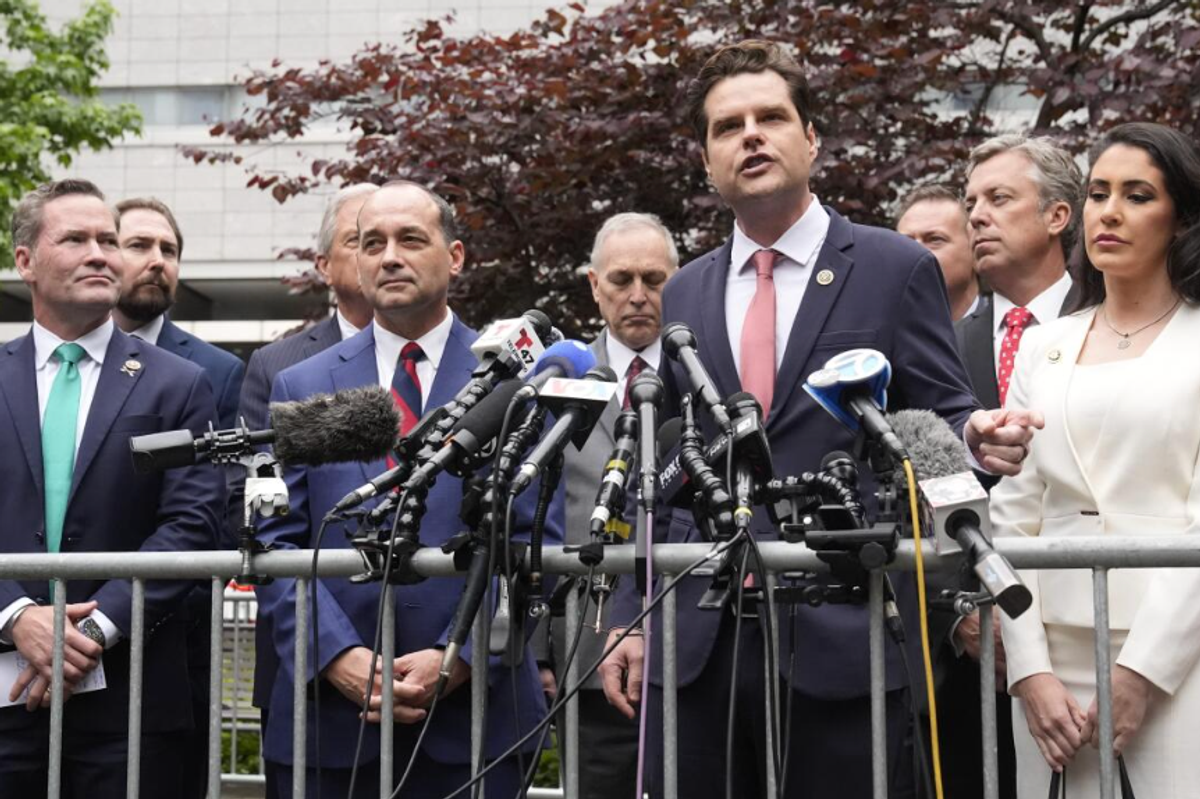
President Donald Trump’s controversial executive order halting the resettlement of refugees in America and banning travelers from seven Muslim-majority countries has raised concern not only among liberals, civil libertarians, and jurists. It has also led a group of prominent evangelical Christian leaders to remonstrate publicly with the president who rode to office in large part on the votes of their flocks.
More than 500 of the nation’s most prominent evangelical pastors, authors, and other worthies signed a letter asking Trump to reconsider the order. The letter, published in The Washington Post this week as a full page ad, reminded the president of the Bible’s story of the Good Samaritan, in which “Jesus makes it clear that our ‘neighbor’ includes the stranger and anyone fleeing persecution and violence, regardless of their faith or country.”
The letter added that “compassion and security can co-exist,” yet while Americans quarrel about policy, innocent people die. “For the persecuted and suffering every day matters, every delay is a crushing blow to hope.”
It’s heartening, amid the wasteland of cynicism that our politics has become, to see church leaders going out on a limb, challenging not only Trump but all Christians in our body politic to attend to a central call of their faith — to serve the suffering — even though it involves sacrifice and risk.
The clergy are looking at the big picture. Many are involved in the web of agencies across the nation doing the important work of settling refugees, and they see the dimensions of the current crisis that are being missed by many Americans: We are in the midst of the largest global migration upheaval since World War II. At least 60 million people around the world have been forcibly displaced from their native countries, according to the U.S. Committee for Refugees and Immigrants, a nonprofit group that has been aiding refugees for more than a century.
So, it’s not a great time for America, long a beacon to the world’s oppressed, to close its doors.
The headline-grabbing portions of Trump’s order banned Syrians altogether, singled out seven predominantly Muslim countries and temporarily halted all resettlement for four months. But Trump also halved the number of refugees that the U.S. will allow into the country in fiscal 2017, from 110,000 to 50,000. Nearly 30,000 have already arrived since October, so the door really is shutting. That decision, perhaps even more than the portions of his order facing court challenges, could cripple the network of agencies that have been helping resettle the world’s displaced people for generations. Indeed, some could be forced to cut staff or shut down.
Resettlement work is labor- and time-intensive. It’s social work, largely, with case managers helping refugees move into apartments, get training and find jobs, enroll children in school, and learn English. Refugees arrive in their host cities often with little more than official documents stuffed in a plastic bag.
Refugees aren’t immigrants in the typical sense. They don’t leave their countries just to seek better economic prospects. Under a 1980 U.S. law, refugees must prove they have been persecuted or have reason to fear persecution due to their race, religion, nationality, political opinion or association with a particular social group. Essentially, refugees must prove they are fleeing for their lives.
There is a strain of ethnic nationalism in American politics that does not care about the plight of the world’s refugees and intends to limit immigration to the U.S., legal and undocumented alike, only pretending to differentiate between the two. Trump came to power as the avatar of this ideology.
Opponents of immigration offer all sorts of bogus critiques of refugee resettlement. They accuse social services agencies of using refugees to greedily get federal funding; they argue our refugee policies are Cold War relics, no longer needed, and that in any case they don’t aid the most urgent cases.
Here’s the statistic that ought to make us all pause: Fewer than 0.1 percent of the world’s displaced people — yes, those seen on the news floating precariously toward European shores and trudging for miles with their children strapped to their backs — are ever resettled through refugee networks. According to the U.S. Committee for Refugees and Immigrants, most live marginal lives in urban areas as unrecognized residents, while many others languish for years in primitive and unsafe camps.
That sheds damning light on Trump’s policy. Amid incredible human suffering, the U.S. president has deemed that we should do less, not more.
IMAGE: Nizar al-Qassab, an Iraqi Christian refugee from Mosul, sees his children off at Beirut international airport ahead of their travel to the United States, Lebanon February 8, 2017. REUTERS/Mohamed Azakir


